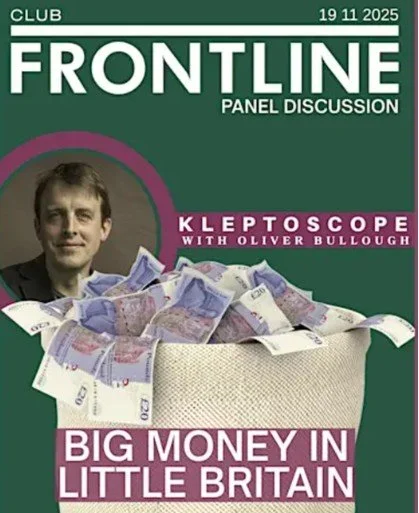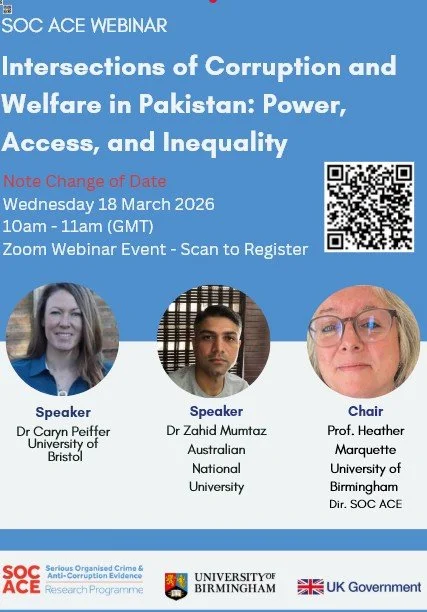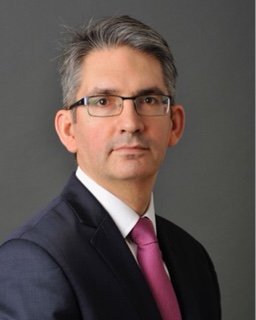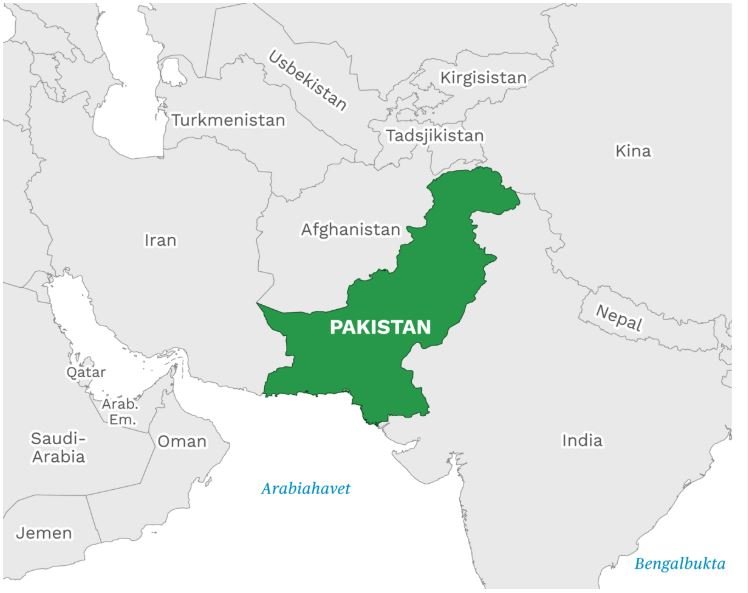NEWS
Eliza Lockhart’s whistleblowing research informs UK government policy
In the lead-up to the budget announcement, media, including the Financial Times, Business Matters and City AM, trailed the initiative, referring to case studies that are unique to Eliza Lockhart’s SOC ACE paper on the role of financial rewards for whistleblowers in the fight against economic crime. Her research was also cited directly in the new UK Anti-Corruption Strategy as evidence underpinning the new policy.
Professor Heather Marquette joins ‘Kleptoscope’ panel at the Frontline Club
In a Frontline Club panel convened by award-winning journalist and author, Oliver Bullough, SOC ACE Director Professor Heather Marquette joined a high-profile panel to discuss whether efforts to shore up Britain’s defences and prevent Westminster from being captured by corrupt elites are enough.
SOC ACE research cited in major parliamentary report on economic crime
A new joint party report, Clean foundations for growth: Unlocking economic opportunity by tackling economic crime, published by the UK Parliament’s All-Party Parliamentary Group (APPG) on Fair Banking, Anti‑Corruption and Responsible Tax, and the UK Anti‑Corruption Coalition, draws on SOC ACE research.
ACE research informs the new UK Anti-Corruption Strategy 2025
The new UK Anti-Corruption Strategy 2025: Supporting growth, strengthening security, protecting democracy describes the Anti-Corruption Evidence programme - including SOC ACE, GI ACE and SOAS ACE - as “world-leading” providers of evidence on understanding the scale and harms of corruption.
Webinar Recording now available - Women and Illicit Finance in Russia’s Occupation of Ukraine - Dr Orly Stern and Olivia Allison
The recording of Dr Orly Stern and Olivia Allison’s for a webinar examining the gendered dynamics of Russia’s occupation of Ukrainian territories is now available for download here .
They considered how women participate in – and are harmed by – the illicit financial flows (IFF) underpinning the occupation economy.The will explore how women are embedded across mid‑ and lower‑level administrative, judicial, and civil service structures, facilitatating property seizures, business expropriations, and corrupt reconstruction schemes.
SOC ACE February 2026 Newsletter
In the first edition of 2026, explore the latest from the SOC ACE family, including how SOC ACE research is informing UK Parliamentary debate, join two coming SOC ACE webinars on women and illicit finance in Russia’s occupation of Ukraine, and on corruption and welfare reform in Pakistan, find out about new research projects on organised crime and state-sponsored assassinations, mapping Russian threat actors’ business networks, the politics of ports for countering organised crime, and new illicit trade ‘red-flag’ taxonomy, and listen to new podcasts featuring research on youth and gangs and fit for purpose anti-money laundering systems.
Sign up here to regularly receive the newsletter direct to your inbox
Webinar - Women and Illicit Finance in Russia’s Occupation of Ukraine - Dr Orly Stern and Olivia Allison - Thursday 19 February 2026 - 14:00 15:00
Join Dr Orly Stern and Olivia Allison for a webinar examining the gendered dynamics of Russia’s occupation of Ukrainian territories. They will consider how women participate in - and are harmed by - the illicit financial flows (IFF) underpinning the occupation economy.
The will explore how women are embedded across mid‑ and lower‑level administrative, judicial, and civil service structures, facilitatating property seizures, business expropriations, and corrupt reconstruction schemes.
Mapping Russian threat actors' business networks
A new research project will examine Russia’s use of corporate, financial, and legal structures to support covert activity.
This is an increasingly important aspect of the hybrid threats. Yet the business networks and intermediaries linked to individuals affiliated with Russian threat actors remain insufficiently mapped, limiting the ability of policymakers and analysts to understand these networks.
New Research Project - Developing a red-flag taxonomy: A proof of concept for illicit trade
A new proof‑of‑concept project is assessing whether a single analytical framework can detect red flags across different forms of transnational crime, including illicit trade in legal commodities such as tobacco and pharmaceuticals, human trafficking, and drugs.
The research which asks whether the data that reveal cocaine trafficking might also expose tobacco smuggling or indicators of human trafficking.
New Research Project - Criminal hands, state ends: State-sponsored assassinations using organised crime
A new SOC ACE research project is examining how governments increasingly rely on organised crime networks to carry out targeted assassinations.
The project will look at the networks, how they are managed and what policy initiatives might combat this threat
New Research Project - Port Politics: A service characteristics approach to countering organised crime
A new SOC ACE research project will examine the growing vulnerabilities of global seaports to organised crime, revealing how these critical trade gateways are increasingly targeted by criminal groups.
Revised date: SOC ACE Webinar: Corruption, Informal Welfare, and the Politics of Survival in Pakistan – 18 March 2026 @ 10am GMT
Join SOC ACE researchers - Dr Zahid Mumtaz and Dr Caryn Peiffer - for a webinar exploring the complex relationship between corruption and informal security welfare regimes, with Pakistan as a case study. In contexts where formal welfare systems are weak or inaccessible, people often depend on kinship ties, community structures, and patron‑client networks for social protection.
Register here or click through for more information!
SOC ACE December 2025 Newsletter
In this edition, explore the latest from the SOC ACE family, including how SOC ACE research is informing UK policy, new publications on Chinese money laundering organisations, Iranian state threats, security sector reform, functionality of corruption in the Pakistan social welfare regime and the gender dynamics of Russia’s use of illicit financial flows in occupied Ukraine, and listen to event recordings and podcasts featuring SOC ACE researchers and research.
Sign up here to regularly receive the newsletter direct to your inbox
Webinar video now live - Rooting Out Collusion: Reforming Police and Military Entanglement with Organised Crime
Webinar video - the lessons learnt in Georgia, Columbia and South Africa addressing security forces involement in organised crime. They highlight political will, institutional control, and prosecutorial strength are vital to success.
Presenters say policy must be politically grounded, and include coherent leadership, oversight, and tackling entrenched interests.
Addressing police and military involvement in serious and organised crime
Liam O’Shea et al discuss the lessons learnt in Georgia, Columbia and South Africa addressing security forces involement in organised crime. They highlight political will, institutional control, and prosecutorial strength are vital to success.
They say policy must be politically grounded, and include coherent leadership, oversight, and tackling entrenched interests.
Matthew Redhead interviewed by BBC Radio 4’s ‘Playing Spies’
Matthew Redhead has appeared on BBC Radio 4’s Playing Spies documentary. He was interviewed by Gordon Corera for the programme, that was broadcast on Sunday 30 November.
The logic of resistance: The ongoing state threats challenge from Iran
The fitfth in the Synthesis Paper series, The logic orf resistance: The ongoing state threats challenge from Iran, offers a fresh focus for Matthew Redhead’s previous research.
Describing the scope and scale of Iran’s activity, the paper examines Iran as a state threat actor, and offers observations for future policymakers.
New research paper - Conceptualising the interplay of corruption and an informal security welfare regime: Pakistan case study
New research by Dr Zahid Mumtaz and Dr Caryn Peiffer, is now available. Their paper, Conceptualising the interplay of corruption and an informal security welfare regime: Pakistan Case Study, explores the complex relationship between corruption and informal security welfare regimes. In contexts where formal welfare systems are weak or inaccessible, individuals often rely on kinship, community, and patron-client networks for social protection.
Women and Illicit Finance in Russia’s Occupation of Ukraine
Dr Orly Stern and Olivia Allison discuss the role of women in the Russian occupation of Ukraine. They describe how women are both perpetrators and victims of the regime and the roles they play in its administration, and the large-scale corruption and expropriation.
They argue that an analysis of women’s roles should be nuanced, acknowledging their complex and varied experiences.
Event launch of new paper - Flying Money, Hidden Threat: The Growth of Chinese Money Laundering Organisations
Kathryn Westmore is set to launch her latest paper, Flying Money, Hidden Threat: The Growth of Chinese Money Laundering Organisations, at RUSI HQ on Whitehall on 12 November 2025.
The event will start at 16:30, when she will be joined by a panel of experts to discuss the paper and explore why and how Chinese money laundering organisations (CMLOs) have become so successful - and whether the threat they pose should be considered a state threat.


















